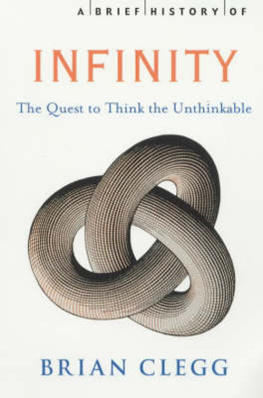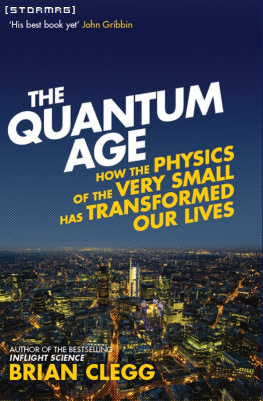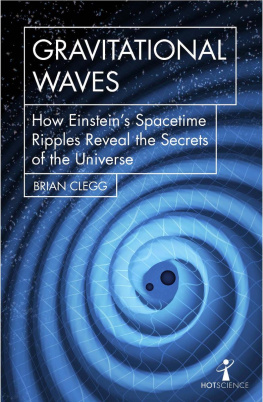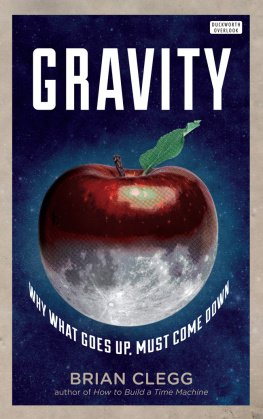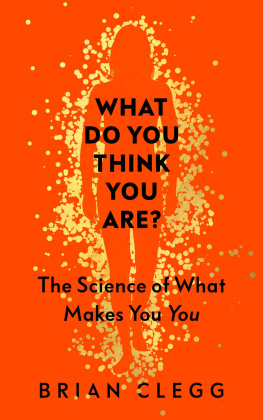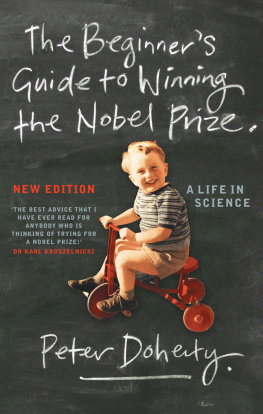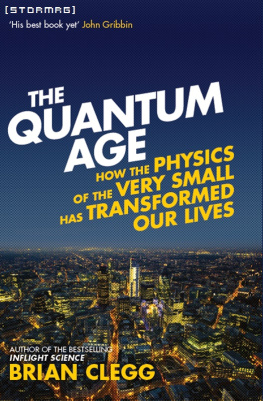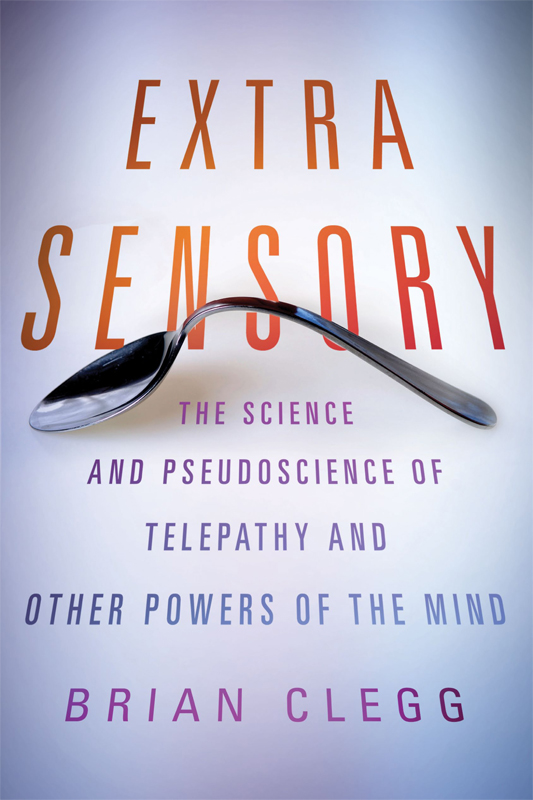
The author and publisher have provided this e-book to you for your personal use only. You may not make this e-book publicly available in any way. Copyright infringement is against the law. If you believe the copy of this e-book you are reading infringes on the authors copyright, please notify the publisher at: us.macmillanusa.com/piracy.
To Gillian, Chelsea, and Rebecca
ACKNOWLEDGMENTS
My thanks to everyone at St. Martins Press who have put so much work into this book, particularly my editor, Michael Homler. A real debt is owed to the many researchers described in the book who have been prepared to risk their reputations to investigate a subject that many scientists consider untouchable.
CONTENTS
FEEL THE POWERSUPERHEROES AND PHYSICS
Admit it. At some time in your life you have probably wished that you had superpowers. There is something particularly appealing about being special, having something above and outside the ordinary, being able to go far beyond the conventional capabilities of a human being. As a kid, I certainly did a fair amount of running around with one arm stuck out in front of me, playing Superman, pretending that I could fly.
Even as an adult, the idea of having such paranormal abilities appeals. You may try to conceal the delight in a cloud of sophistication, but you have to be totally lacking in imagination not to get a frisson of excitement at the thought of having such talentsand the continuing box-office success of superhero movies shows that the public at large cant get enough of the vicarious enjoyment of the feats that are possible with superpowers.
Unfortunately, when we drop the suspension of disbelief required to enjoy such a movie and examine superheroes through the scientific microscope, most superpowers fall away like discarded spiderwebs. They could never be real, as they routinely break the laws of physics. Take a simple examplein the movie Spider-Man 2 , our hero stops a speeding train by standing on the front of it and spraying out spiderwebs, which attach to the buildings alongside the track, bringing the train to a halt. Leaving aside the biological discomfort that comes from realizing that Peter Parker shoots his webs from where spiders have their sex organs, not their spinnerets, the way this works is just wrong.
In the process, the spiderwebs are stretched for what seems like about half a mileyet the fibers never get any thinner. Not only is there no material that could stretch that many times its original length, it would be impossible for the strands not to get thinner. Where is all the extra substance coming from? More worrying still, either the attachment points of the web to Peter Parkers wrists would break, the brick skin on the front of the building would peel off, or Parker himself would be torn in two by the amount of force being applied to him by the sheer momentum of many tons of speeding train. You could imagine a mechanism where the webs would workrepeatedly attaching between the train and buildings webs that stretch and snap, gradually slowing the train down over many milesbut the scene as played out is physically impossible.
Similarly, Supermans powers are a collection of nonstarters packaged up in blue tights and red shorts. When he flies up into the air, something has to be pushing back on either the air around him or the earth beneath using some kind of action at a distanceits basic Newtons third law stuffbut what is it that does the pushing? Where is the force coming from? We are told he gets his powers from our yellow sun because his home world has a red sun. How? What physical forces are behind this ability? This doesnt even come close to being science fictionit is pure fantasy. Or, if you prefer it, magic.
Now it might seem cruel to overanalyze our superheroes in this way. Notice the f word in science fictionits only a story. In the end, the science in science fiction is much less important than telling a good tale. And in most cases, worrying too much about the plausibility of the science is like breaking a butterfly on a wheel. Yet the point of making this unfair examination is that the restrictions and limitations we have to place on superheroes are due to issues with the physics. When movie directors want something dramatic to happen, they dont worry about what would physically be viable, they just do what looks good. In searching for real superpowers we dont have that luxury.
However, finding problems with superheroes physical abilities leaves open the possibility of paranormal mental skills. Is there a loophole here that would make a form of superpower possible? The mind is much more mysterious than the straightforward laws of Newtonian physics. Its remarkable when you think about itwe know much more about how our galaxy, the Milky Way, works than we do about the functioning of the human brain. We learn more every year, but neuroscience has a long way to go to catch up with the other sciences.
Its hard not to wonder whether it would indeed be possible to go beyond normal human capabilities using the powers of the mind. There are some questions to ask, though, before we all don capes and tights. Do such paranormal mental capabilities even exist? Are there good physical explanations for talents like telepathy and telekinesis? Or are the many reported cases of such abilities just the result of wish fulfillment, every bit as much as classic superhero powers? Are all these examples of supernormal capabilities nothing more than fraud or self-delusion?
It is true, as we will see, that we can conceive of scientific explanations for at least some of these so-called psi or ESP (extra sensory perception) abilities. Such mental powers could work within the bounds of physics, which surely makes them worthy of examination. But is there any real evidence to back up the existence of these talents, or are they nothing more than fantasy?
We should certainly not follow the lead of some skeptics and dismiss such powers out of hand. Science must always be open-minded (in this case, quite literally). To dismiss an observation without looking into it is totally unscientific. Admittedly a lot of effort has been put into the area in the past eighty years and it is hard to point to good, reproducible, incontrovertible evidence of the kind of psi abilities that we come across in anecdotes. But that doesnt excuse taking a stance based more on belief than on evidence.
All too often, scientists have a mindset that considers anything outside the currently accepted worldview as not being science at all. This is a sad mistake, because it demonstrates a deep misunderstanding of what science really is. As Professor Stuart Firestein points out in his book Ignorance , working scientists dont get bogged down in the factual swamp because they dont care all that much for facts. Its not that they discount or ignore them, but rather that they dont see them as an end in themselves. They dont stop at the facts; they begin there, right beyond the facts, where the facts run out.
The point of Firesteins remark is not that we should ignore the facts and make science up as we go along, but rather that science is primarily about reaching out into the areas where we are ignorant. He likens the activity to searching for a black cat in a pitch-dark room, when the cat may not even be there. Although more aware of this aspect of science than the general public, scientists do still have a tendency to reject possibilities because they feel wrong or run counter to their personal beliefs, going along with the current majority view, even though this may mean missing out on vast swaths of juicy ignorance ripe for examination.



